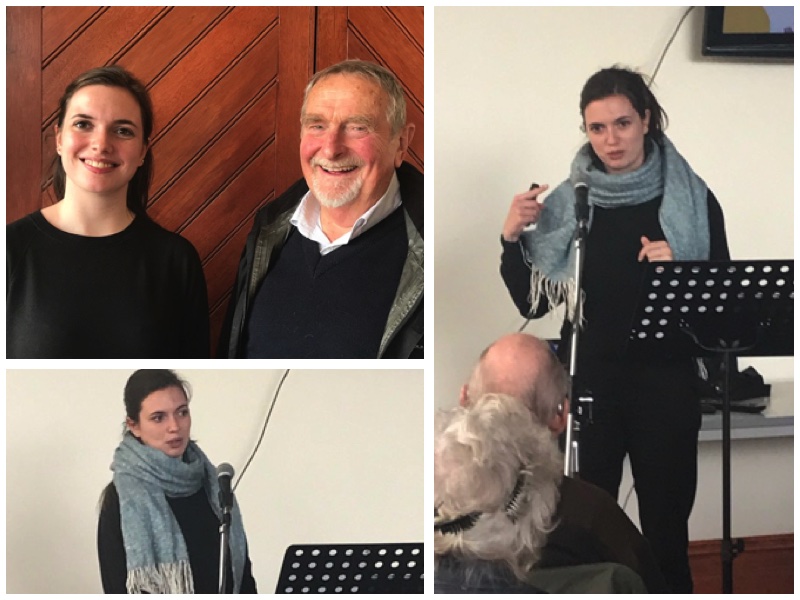The Carnival Experience
by John Clarke
For most people carnival or Mardi Gras conjures up pictures of colourful Italian, Spanish or South American street parades, but one of the world’s largest and longest carnivals is held annually in the German city of Cologne.

At the last meeting of the German speaking group Kaffee und Kuchen the guest speaker was Helena Weyland, a postgraduate student from Cologne University who is currently working in the German Department at the University of Adelaide. It was the Cologne Carnival which was the main subject of her talk.
Like the new year the carnival begins with a countdown, in this case to the eleventh minute of the eleventh hour of the eleventh of November. The leading figures of the carnival are the Dreigestirn (triumvirate): the Jungfrau (maiden), Prinz (prince) and Bauer (farmer). They are not honorary or elected; large sums of money are paid to take on those roles. The Prinz is the most important, the personification of carnival, and is addressed as Seine Tollität (His Madness). The Jungfrau is a man, dressed in a toga and addressed as Ihre Lieblichkeit (Her Loveliness). She represents Colonia, the name given to the city in 50 AD by the wife of the Roman emperor Claudius, Agrippina, who was born there 35 years earlier. (From 1936 to 1943 by order of the Nazis the role was played by a woman.) The Bauer has to be a large man to represent the power of the farming community and its historical importance to Cologne’s wealth. He is addressed as Seine Deftigkeit (His Heftiness).
Through the four months of the carnival there are many events held in clubs and bars where Koelsch, Cologne’s famous beer, flows freely. There are parades throughout the city’s districts, including one by schoolchildren and a satirical, somewhat scatalogical, irreverent parade directed at politicians and prominent people.
The Dreigestirn are particularly important at the end of the carnival period when they lead costumed participants through the streets in a week of unrestrained, riotous behaviour. It is estimated over a million people take part in what is referred to as the crazy days. The highlight of the week, when more organized parades occur, is Rosenmontag (Rose Monday). Unlike other carnivals such as Mardi Gras (Greasy Tuesday) the people of Cologne, greeting each other with Kölle Alaaf! (Cologne Alive!), celebrate on the Monday before Ash Wednesday, the first day of the Christian season of Lent. On the evening of Ash Wednesday Carnival ends symbolically with the burning of straw dolls (Nubbel), which had been hanging outside the pubs and bars throughout the carnival period.
The next Kaffee und Kuchen meeting will be held at the Langmeil Centre, 7 Maria Street, Tanunda on Monday, 26 June. The meeting (at the usual time of 1pm) will be preceded by a German luncheon of goulash and spaetzle with vegetables at 12 midday. The cost is $25 which includes afternoon tea. To book please ring Steffi Traeger on 0408 621 384 by 23 June.
